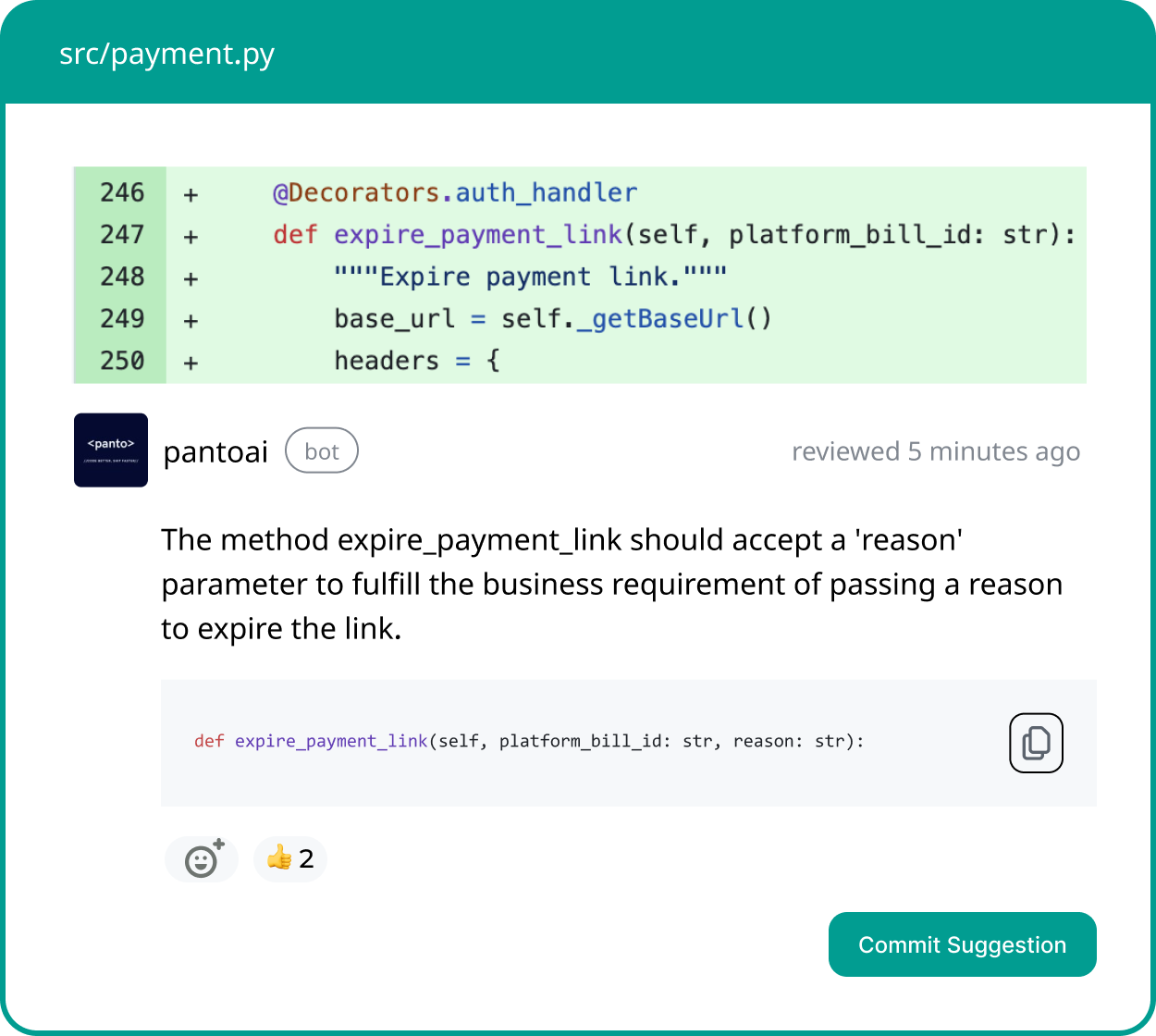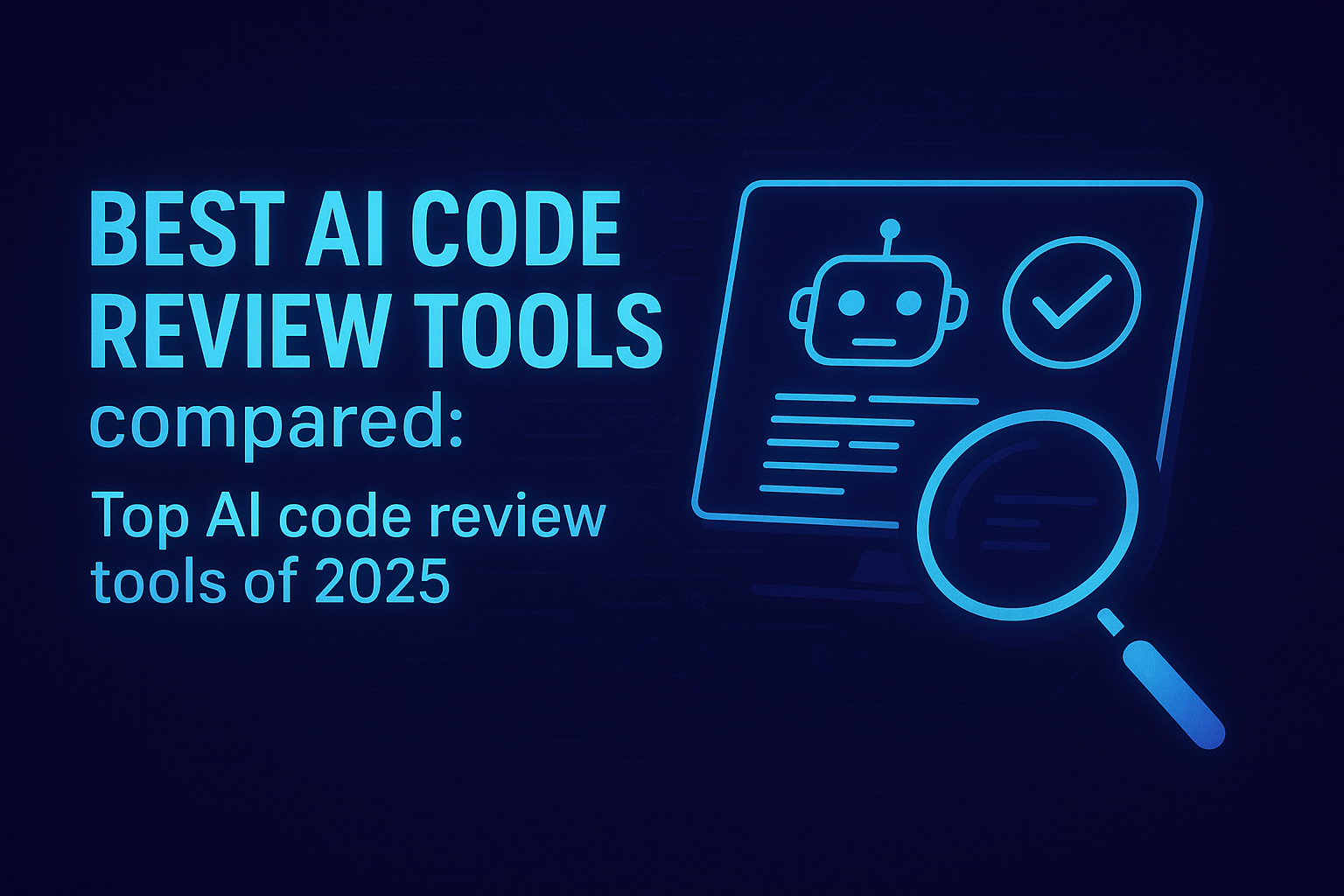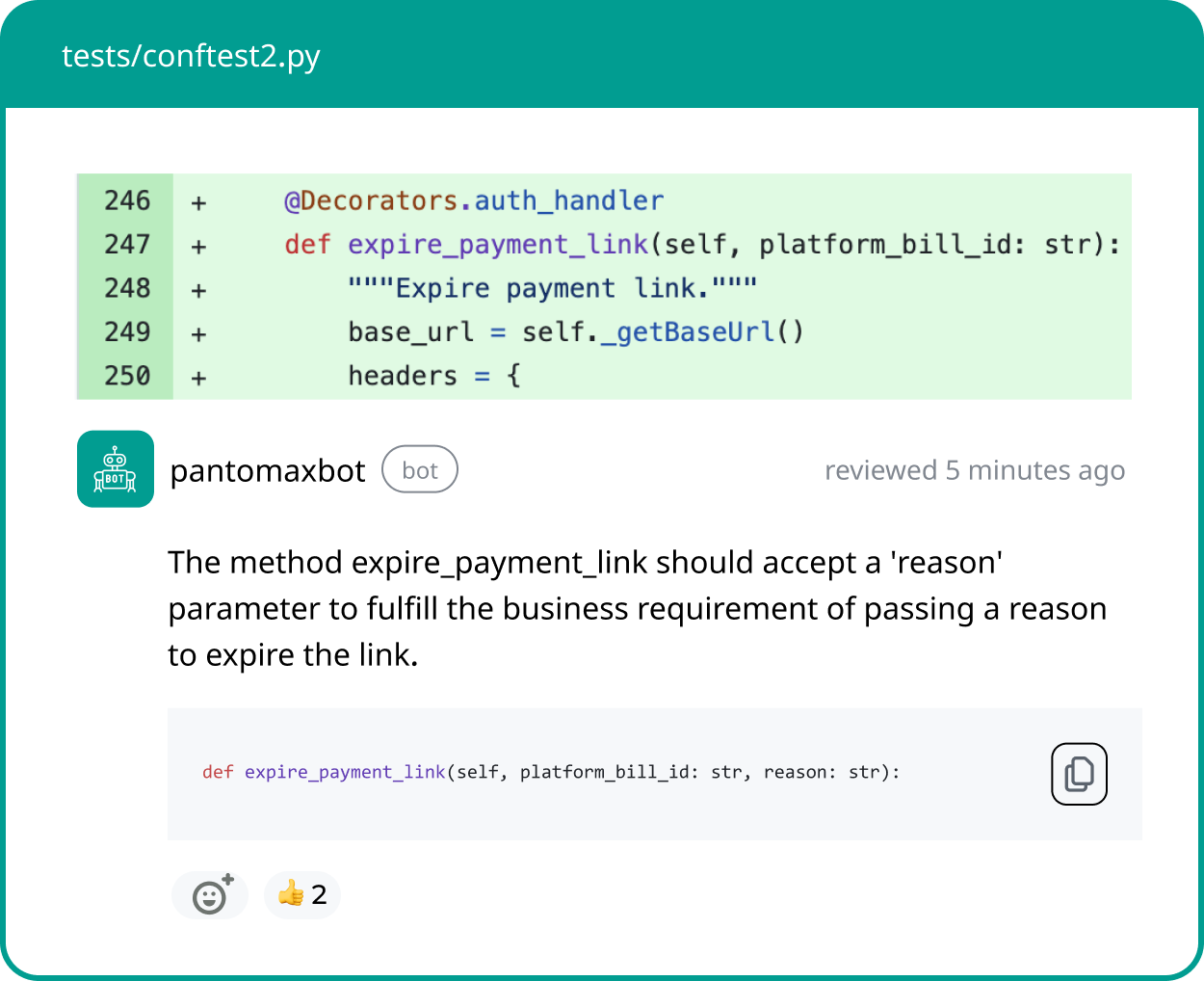Securing high-quality, maintainable code at speed is no longer optional. As release cycles shrink and attack surfaces grow, AI code review tools have become a core part of modern engineering and DevSecOps workflows.
This guide provides a technical, side-by-side evaluation of the best AI code review tools in 2026, focusing on accuracy, security depth, developer experience, and scalability. The goal is not hype—but helping engineering leaders choose the right tool for their stack and risk profile.
What Is AI Code Review?
AI code review refers to the use of reinforcement learning and semantic analysis to automatically inspect source code during commits or pull requests.
These tools detect bugs, security vulnerabilities, logic flaws, and maintainability issues—often earlier and more consistently than manual review alone.
Why AI Code Review Is Now Essential
- Codebases are larger and more polyglot
- Security issues increasingly originate in dependencies and IaC
- Human reviewers cannot scale with PR volume
- Consistency and policy enforcement matter more than ever
AI review does not replace human judgment—it augments it, filtering noise and surfacing high-impact issues.
How We Evaluated These AI Code Review Tools
Each tool was assessed using the following criteria:
- Detection accuracy & false positive control
- Security coverage (code, secrets, dependencies, IaC)
- Workflow integration (GitHub, GitLab, CI/CD, IDEs)
- Customization & policy enforcement
- Scalability for teams and enterprises
Best AI Code Review Tools in 2026
1. Panto AI

Panto AI offers a unified AI-driven code review and AppSec platform that combines static analysis, secrets detection, dependency scanning, and infrastructure-as-code security into a single workflow. Unlike tools that focus purely on syntax or security, Panto AI contextualizes issues based on repository structure, code history, and business-critical components, delivering actionable insights directly within pull requests.
Strengths
- Broad security coverage, addressing not just application logic but also dependencies, secrets, and IaC configurations.
- Context-aware prioritization helps reduce alert fatigue, surfacing only high-priority risks to developers.
- Zero-configuration onboarding works out of the box with major VCS platforms like GitHub, GitLab, and Bitbucket.
- Generates compliance-ready reports suitable for SOC 2, ISO, and PCI-DSS audits, streamlining governance.
- Inline PR summaries and suggestions allow reviewers to save time while maintaining high code quality standards.
Limitations
- Best value is realized in medium-to-large teams; small teams may not fully utilize the platform’s capabilities.
- Some advanced features require familiarization to maximize efficiency.
Best for:
Engineering teams looking for an all-in-one solution that combines code quality, security, and compliance without adding multiple tools to the workflow.
2. Aikido Security

Aikido Security is an AI-augmented code review platform designed to focus on high-impact security issues while minimizing noise from false positives. By integrating directly into developer workflows, it ensures that security findings are actionable and contextually relevant. Its AI engine considers repository history, code changes, and team standards to surface meaningful risks.
Strengths
- Reduces false positives through context-aware analysis, preventing alert fatigue and saving developer time.
- Seamless GitHub integration ensures security feedback is delivered within pull requests without disrupting workflow.
- Customizable security policies allow teams to align rules with internal standards and compliance requirements.
- Provides detailed vulnerability insights and remediation guidance to accelerate fixes.
Limitations
- Initial setup and policy tuning are needed to achieve optimal signal quality.
- May require active engagement to fully benefit from contextual analysis, particularly in large or complex codebases.
Best for:
Startups and mid-sized teams seeking a developer-friendly security scanning solution that prioritizes accuracy and actionable feedback over sheer volume of alerts.
3. CodeRabbit

CodeRabbit delivers AI-powered, line-by-line code reviews directly inside pull requests, with a strong emphasis on readability, coding standards, and actionable feedback. Unlike generic static analysis tools, it focuses on guiding developers toward best practices while maintaining project-specific coding conventions.
Strengths
- Inline, context-aware suggestions make adoption seamless for developers.
- Customizable review rules allow teams to enforce project-specific standards consistently.
- Facilitates collaboration by enabling multiple reviewers to comment on AI suggestions within PRs.
- Supports multiple languages and frameworks commonly used in modern software development.
- Highlights maintainability and readability issues in addition to syntax errors, promoting long-term code health.
Limitations
- Pricing can be restrictive for smaller teams or individual developers.
- Security and vulnerability detection capabilities are limited compared to specialized tools.
Best for:
Teams focused on code consistency, collaboration, and improving code quality without necessarily needing deep security analysis.
4. Devlo.ai

Devlo.ai acts as a virtual senior engineer, leveraging AI-driven reasoning to detect deep logic flaws, missing tests, and performance risks. It goes beyond surface-level syntax issues to identify brittle code, architectural risks, and runtime problems that can affect production stability.
Strengths
- Detects complex logic errors, edge cases, and architectural weaknesses proactively.
- Automated test generation suggestions improve unit test coverage and reduce gaps in testing.
- Performance insights help teams identify potential bottlenecks or reliability issues before deployment.
- Offers detailed code explanations to help developers understand suggested changes.
Limitations
- Onboarding and configuration are required to enable advanced reasoning features.
- Less effective for niche frameworks or uncommon programming languages.
Best for:
Engineering teams prioritizing code correctness, robust test coverage, and long-term reliability in complex or mission-critical projects.
5. Semgrep

Semgrep is a fast, rule-based static analysis engine that allows teams to define and enforce custom security and quality policies across repositories. It combines the flexibility of custom rules with the performance necessary for large-scale codebases.
Strengths
- Open-source and highly extensible, allowing teams to create tailored security or quality checks.
- Performs fast scans suitable for large repositories and continuous integration pipelines.
- Rich ecosystem of pre-built rules for security, compliance rules, and code quality best practices.
- Can be integrated into CI/CD pipelines to enforce policies automatically during development.
Limitations
- Writing and maintaining complex custom rules requires expertise.
- Some advanced features, including cloud integration and managed support, require paid tiers.
Best for:
Security-conscious teams needing granular control over code policies while maintaining flexibility to define project-specific rules.
6. Codacy

Codacy is an automated code quality platform that analyzes codebases for maintainability issues, bugs, and style violations across multiple programming languages. Its main focus is giving teams visibility into technical debt and long-term code quality trends.
Strengths
- Supports multiple languages, making it ideal for polyglot codebases.
- Dashboards provide insights into code quality trends, highlighting areas for improvement.
- Flexible enforcement of coding standards and automated PR checks to prevent regressions.
- Can be integrated into CI/CD pipelines for continuous quality monitoring.
- Offers metrics that help teams quantify technical debt and prioritize refactoring efforts.
Limitations
- Advanced security scanning capabilities are limited.
- Tuning may be required to minimize false positives in legacy or large codebases.
Best for:
Teams seeking broad visibility into code quality and maintainability across diverse technology stacks, with a focus on long-term health and technical debt management.
7. Swimm

Swimm enhances code review processes by embedding documentation and knowledge directly into developer workflows. It ensures that developers can access context-sensitive explanations without leaving the IDE, improving understanding of complex codebases.
Strengths
- Improves onboarding for new developers by linking documentation to relevant code segments.
- Keeps documentation synchronized with code changes, reducing outdated or missing knowledge.
- Reduces dependency by adding context within teams.
- Supports a variety of languages and frameworks, making it applicable to diverse codebases.
- Helps teams maintain knowledge continuity across evolving projects.
Limitations
- Not designed for bug or vulnerability detection.
- Functions best as a complement to traditional code review tools.
Best for:
Teams struggling with onboarding, knowledge transfer, or maintaining accurate documentation alongside evolving codebases.
8. GitHub Copilot

GitHub Copilot is an AI-powered code assistant that suggests code snippets and functions during development. While it does not directly enforce code quality or security, it accelerates development and can influence code standards indirectly.
Strengths
- Deep integration with GitHub and IDEs like VS Code ensures seamless workflow.
- Suggests context-aware code snippets and repetitive patterns to speed up coding.
- Reduces development time for boilerplate tasks, freeing developers for higher-value work.
- Learns from project-specific context, improving suggestion relevance over time.
- Supports multiple languages and frameworks, making it versatile across projects.
Limitations
- Not a dedicated code review or security tool.
- Generated suggestions require careful validation to avoid introducing errors.
Best for:
Individual developers or teams optimizing for development speed and productivity rather than formal code review or security enforcement.
9. Code Climate

Code Climate focuses on maintainability analytics and engineering performance metrics, auditing code health over time. It provides actionable insights into technical debt, duplication, and code complexity, helping teams plan improvements strategically.
Strengths
- Highlights code complexity, code duplication, and maintainability issues clearly.
- Provides trend analysis to monitor long-term code quality improvements.
- PR-level issue detection prevents degradation of code health over time.
- Integrates with version control and CI/CD pipelines for continuous quality monitoring.
- Offers metrics for team productivity and code review efficiency.
Limitations
- Limited depth in security and vulnerability detection.
- Some advanced metrics and features require higher-tier subscriptions.
Best for:
Engineering leaders and teams focused on maintaining long-term code health, managing technical debt, and measuring engineering performance.
10. Snyk

Snyk specializes in securing open-source dependencies, containers, and infrastructure-as-code rather than analyzing application logic. It is a critical tool for teams managing complex dependency chains or cloud-based environments.
Strengths
- Maintains an extensive, frequently updated vulnerability database for dependencies and container images.
- Automates remediation through pull requests, reducing manual patching overhead.
- Integrates seamlessly with modern DevSecOps pipelines, CI/CD workflows, and cloud platforms.
- Supports infrastructure security for containers, Kubernetes, and IaC (Terraform, CloudFormation).
- Offers detailed vulnerability reports, including exploitability and remediation guidance.
Limitations
- Does not perform analysis on proprietary application logic or business code.
- Best used alongside dedicated code review or static analysis tools.
Best for:
Teams focused on supply chain security, dependency management, and cloud infrastructure compliance, particularly in modern DevSecOps environments.

Your AI Code Review Agent
Panto reviews every pull request with business context, architectural awareness, and consistent standards—so teams ship faster without hidden risk.
- ✓ Aligns business intent with code changes
- ✓ Catches bugs and risk in minutes, not days
- ✓ Hallucination-free, consistent reviews on every commit
Comparison Table: AI Code Review Tools (2026)
| Tool | Primary Focus | Security Depth | Best For |
|---|---|---|---|
| Panto AI | Unified code + AppSec | High | Teams needing all-in-one coverage |
| Aikido | Dev-friendly security | Medium–High | Startups, agile teams |
| CodeRabbit | PR-level review | Low–Medium | Code consistency |
| Devlo.ai | Logic & testing | Medium | Reliability-focused teams |
| Semgrep | Rule-based scanning | High | Custom security policies |
| Codacy | Code quality | Low–Medium | Multi-language teams |
| Swimm | Documentation | Low | Knowledge sharing |
| Copilot | Code generation | Low | Productivity |
| Code Climate | Maintainability | Low | Engineering metrics |
| Snyk | Dependencies & IaC | High | Supply chain security |
How to Choose the Right AI Code Review Tool
Ask these questions:
- Do you need security, quality, or both?
- How much false-positive tolerance can your team afford?
- Do you need compliance reporting?
- Will this scale across repositories and teams?
Many mature organizations adopt a layered approach, but platforms that consolidate capabilities reduce operational overhead.
Final Thoughts
AI code review tools in 2026 are no longer experimental—they are foundational infrastructure. The best choice depends on whether your priority is speed, security, maintainability, or governance.
For teams evaluating platforms holistically, starting with a unified solution and validating it against real pull requests is often the most efficient path.
If you’re assessing AI code review tools for production use, a short pilot with representative repositories will surface more signal than feature checklists alone.
FAQ’s
Q: What are AI code review tools?
A: AI code review tools are software solutions that use machine learning and large language models to analyze source code for defects, style violations, security issues, and maintainability problems. They augment or automate traditional human reviews by providing contextual feedback, suggestions, and code quality scoring.
Q: How do AI code review tools work?
A: These tools parse the codebase, extract structural and semantic information, and apply trained models or heuristics to identify patterns associated with bugs, anti-patterns, or best practices. Some integrate with version control systems to review merge requests and pull requests automatically.
Q: Which AI code review tools are considered the best?
A: “Best” depends on your goals, but leading AI code review tools are typically evaluated based on language support, integration with CI/CD platforms (like GitHub, GitLab, Bitbucket), accuracy of issue detection, customization capabilities, and scalability for enterprise use.
Q: Are AI code review tools accurate enough for production use?
A: Many modern AI code review tools provide high accuracy for common patterns and are used in production workflows. However, no tool is flawless — false positives and context misunderstandings still occur. Teams often combine automated reviews with human oversight for critical code paths.
Q: How do AI code review tools integrate with development workflows?
A: Most tools integrate directly with version control systems (e.g., GitHub, GitLab) and CI/CD pipelines. They can automatically analyze pull requests, post inline comments, generate review summaries, and enforce quality gates before code merges.
Q: What languages and frameworks do AI code review tools support?
A: Support varies by provider. Many tools cover popular languages such as JavaScript, Python, Java, and TypeScript. Some also support backend, mobile, and cloud-native frameworks. Always check a tool’s documentation for current language and ecosystem support before adopting it.
Q: Can AI code review tools improve code quality?
A: Yes — when used consistently they can catch style violations, potential bugs, and inconsistencies earlier in development. Over time, they help teams enforce quality standards, reduce technical debt, and speed up review cycles.
Q: What are the limitations of AI code review tools?
A: Common limitations include:
- Misinterpretation of complex business logic
- False positives requiring manual verification
- Limited understanding of project-specific conventions
- Dependency on training data quality
Organizations should balance AI-assisted reviews with human context and domain expertise.
Q: Are AI code review tools suitable for enterprise teams?
A: Many solutions are tailored for enterprise use with features such as policy enforcement, audit trails, compliance reporting, and on-premise deployment options. Enterprises often prioritize security, integration with internal systems, and customization.
Q: How much do AI code review tools cost?
A: Pricing models vary widely. Some tools are offered as SaaS with tiered subscription pricing based on team size or usage, while others offer enterprise licensing with dedicated support. Free tiers or open-source options are also available for smaller teams or evaluations.
Q: Should teams use both AI and human review?
A: Yes. AI tools excel at catching routine issues and providing consistency, but human reviewers remain essential for architectural feedback, business logic understanding, and strategic design decisions. Combining both delivers the strongest outcomes.






